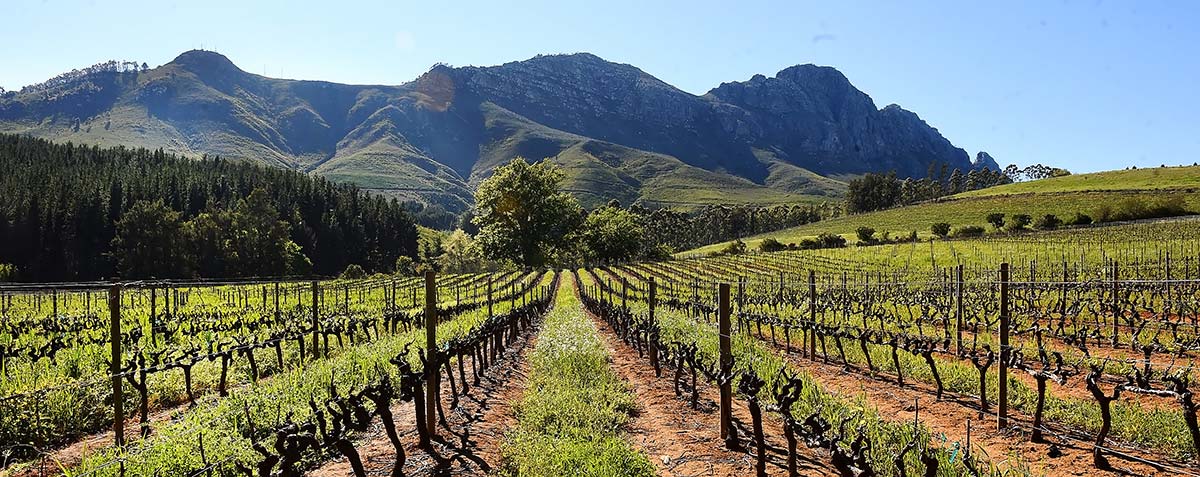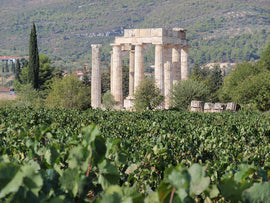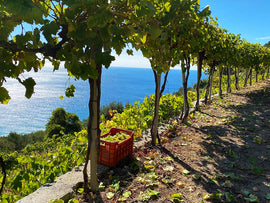South Africa
The southern tip of the African continent boasts such incredible conditions for making wine that only centuries worth of humanity’s absolute worst ideas and impulses running amok could have prevented it from becoming one of the world’s great oenophile destinations. And that’s tragically what happened. But you know that story already, and maybe the most striking aspect of South Africa’s viticultural scene today is how forward looking and future oriented it is. For years now we’ve been saying the wine’s never been better, and it never gets any less true. So, in this one unbelievably beautiful place, from this one specifically stunning vantage point, the horizon appears to be in great hands. And that definitely seems like something worth celebrating at this moment.
The end of apartheid in 1990 initially found South African winemaking in a parlous spot: vineyard viruses remained rampant and the decades of international pariahdom ensured the persistence of outmoded and ineffective viticultural methods. Significant progress has been made in the years since though, and a strong focus on research and experimentation in plantings, techniques and varietals has produced vastly improved wine that reflects the remarkable biodiversity of the land itself. In addition, attempts to redress the wrongs of the past via ethical viticulture have made South Africa the largest global producer of Fairtrade wine and a pioneer in sustainability.
Wines in South Africa are classified according to the Wines of Origin (WO) system, which divides growing regions into four classifications. They are, from large to small: geographical units, regions, districts, and wards. There are only 4 geographical units in the whole country, the largest of which, the Western Cape, is by far the most important. It contains the oldest region, Constantia, once famous for the dessert wine Vin de Constanta, and Stellenbosch and Swartland, responsible for some of the country’s most prestigious reds, mostly made from Cabernet Sauvignon and Shiraz (Syrah) -- as well as South Africa’s signature grape, Pinotage, which is homegrown hybrid of Pinot Noir and Cinsault.
Each spot showcases an impressive range of styles—from crisp coastal whites to structured inland reds. Cool ocean breezes from the Atlantic, dramatic mountain ranges, and diverse soils create ideal conditions for winemaking. On the coast, fynbos and renosterveld flourish with rainfall up to 39 inches a year. But venture inland over the mountains, and you’ll find hardy succulents and sun-soaked valleys where grapes thrive in dry, rugged terrain.
Despite its world-class quality, South African wine still represents less than 0.5% of U.S. wine imports—a fraction compared to other New World producers. That’s why we’re excited to introduce you to some truly standout bottles from this dynamic region. Even better? We’ve paired each wine with a traditional South African recipe to bring the experience full circle. Click the links, pour a glass, and take your tastebuds on a journey to the Cape.
Cheers!
Carrie Upson- General Manager and Wine Buyer
__________________________________________________________________________________________
|
2023 Aslina Chardonnay |
|
|
Region / Country of Origin: Western Cape, South Africa |
About the Winemaker: Ntsiki Biyela is one of the first black female winemakers in South Africa. She graduated from Stellenbosch University in 2003 with a BSc in Agriculture (Viticulture and Oenology) at and joined boutique winery Stellekaya Wines the following year. Her ambition to create her own wines grew following a collaboration with California winemaker Helen Kiplinger, as part of Mika Bulmash’s Wine for the World initiative. In addition, she has consulted in France, making wine under Winemakers Collection in Bordeaux. About the winemaking: The grapes were handpicked at optimum ripeness in February 2023. 75% of the grapes came from Stellenbosch while 25% came from Elgin. The Stellenbosch grapes were aged in stainless-steel tanks and left on the lees for ten months. Meanwhile, the Elgin grapes were fermented in second fill and third-fill barrels and then left on the lees for ten months. Bottled in November 2023. Tasting Notes: A deep, robust Chardonnay with notes of honey on the nose. The partial wooding gives this wine a unique edge while highlighting the stunning tropical fruit and limy character. On the palate, this Chardonnay offers a lingering finish and a mild buttery flavor, with undertones of vanilla and honeybush tea. With an Old World, Burgundian elegance, it’s a wine to savor slowly and enjoy to the fullest. |
|
Winemaker: Ntsiki Biyela |
|
|
Price: $25.99 bottle/ $280.69 case |
|
|
Suggested Food Pairing: Risotto with prawns, Roasted cauliflower with sesame seeds, Roast chicken with herbed butter |
|
|
2020 Scions of Sinai Atalantikas Pinotage |
|
|
Region / Country of Origin: Lower Helderberg, Southern Stellenbosch, South Africa |
About the Winery: At Scions of Sinai, they prioritize skilled and sensitive agricultural practices rooted in organics. They approach winemaking with mindfulness towards natural processes, employing a hands-on approach in the vines and maintaining a chemical and additive-free cellar. Their commitment to manipulation-free and honest wines allows each bottle to express its site authentically. Embracing natural fermentations with wild yeast strains from each vineyard, they aim to capture the pure and complex identity of their terroir. With a ‘Terroir’ mindset, they obsessively attend to the finer details, allowing each vintage to naturally express its unique character. About the winemaking: Grapes are hand harvested into small crates. The early morning freshness is key and these healthy grapes are brought in by dawn. 30% Stems intact, 30% destemmed and the rest are direct pressed. Fermentations are slow and spontaneous for 10-15 days under ambient cool cellar conditions, 50% done in large format concrete, (no cooling aids are used). Bone dry. No additives or other manipulations, judicious use of minimal SO2 only. Ageing in tank, on the lees, for 8 months (100% Malolactic complete). Bottled unfiltered and no fining. Tasting Notes: Atlantikas embodies the essence of a ‘Farmer’s Rosé’ style Pinotage, crafted with a nod to tradition and a focus on purity. With its open and textural palate, Atlantikas offers a captivating expression of its coastal origins. It showcases a delightful combination of fruit-forward and spicy aromatics, as well as some savory, meaty notes and black tea-like tannins. |
|
Winemaker: Bernhard Bredell |
|
|
Price: $23.99 bottle/ $259.09 case |
|
|
Suggested Food Pairings: Spicy lentil stew, Buffalo wings, Sausage and pepperoni pizza |
|





